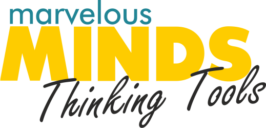I am currently writing a series of blogs that explore the urgent need for transformation in education.
Click HERE to read the first blog: Are Schools Tone-Deaf to Learning?
This intermezzo blog serves as a bridge, setting the foundation for my next post.
It establishes the urgency for change by framing education’s current crisis in the context of Toffler’s Third Wave, making it clear that traditional schooling methods are outdated and unsustainable. It also introduces brain-based learning as the necessary alternative without diving into specific solutions just yet. Before discussing how to escape this crisis, we must first recognize the crisis itself.
For decades, schools have operated on an outdated model—a relic of the Industrial Age designed for efficiency, obedience, and mass production of knowledge. But the world has changed, and education hasn’t kept up. Alvin Toffler’s Third Wave warned us of this shift: as we move from an industrial society to a knowledge-based future, rigid, bureaucratic systems will collapse under their own weight. The First Wave represented an agricultural society, where education was informal and rooted in survival skills.
The Second Wave, driven by the Industrial Revolution, introduced mass schooling, standardization, and centralized control to produce a workforce suited for factories. Now, in the Third Wave, we are witnessing the rise of an information-driven society, where knowledge is fluid, technology-driven, and rapidly evolving. Schools, still clinging to the Second Wave, are running out of time.
The old system—standardized, test-driven, and resistant to change—is a burning platform, yet many refuse to acknowledge the flames. The future demands brain-based learning, where teaching aligns with how the brain naturally processes, connects, and applies knowledge. But instead of embracing this, education remains trapped in outdated, mechanical methods.
The reality is stark: students disengage because they aren’t taught to think, teachers burn out under policies that strip them of autonomy, and despite years of schooling, young people leave unprepared for the complexities of modern life. Schools are not just lagging behind; they are actively failing to equip learners for a world that demands adaptability, critical thinking, and innovation.
The Third Wave of education is brain-based, shifting from rote memorization to deep understanding, from standardized instruction to dynamic, thinking-centered learning. Instead of embracing the decentralized, technology-enhanced learning models of the Third Wave, education remains anchored to outdated, industrial-era methods, hoping minor tweaks will keep the system afloat.
Too often, attempts to reform education fail because they are seen as optional improvements rather than urgent necessities. But transformation only happens when the cost of staying the same becomes unbearable. Right now, many schools don’t see the flames beneath them—or worse, they do and still refuse to jump.
This is why the concept of the burning platform is critical. Change doesn’t happen when schools feel comfortable; it happens when they realize survival depends on it. Schools are already on the edge—student disengagement, teacher burnout, and the irrelevance of outdated curricula prove it. As a result, parents are increasingly seeking alternatives, turning to homeschooling, online education, and innovative learning models. If traditional schools fail to adapt, they risk becoming obsolete in the face of more flexible and effective options. But instead of confronting these realities, the system applies short-term fixes, hoping the fire will somehow extinguish itself. The Third Wave is not about gradual adaptation; it is about a fundamental shift in thinking, where schools must embrace decentralized, flexible, and technology-integrated learning environments to remain relevant.
In my next post, I’ll explore why most schools won’t change until they have no other choice—and how Thinking Tools provides the lifeboat they desperately need. Until then, I leave you with this question: will education wait until the fire reaches its feet, or will it finally take the leap into a future that aligns with how the brain actually learns?





